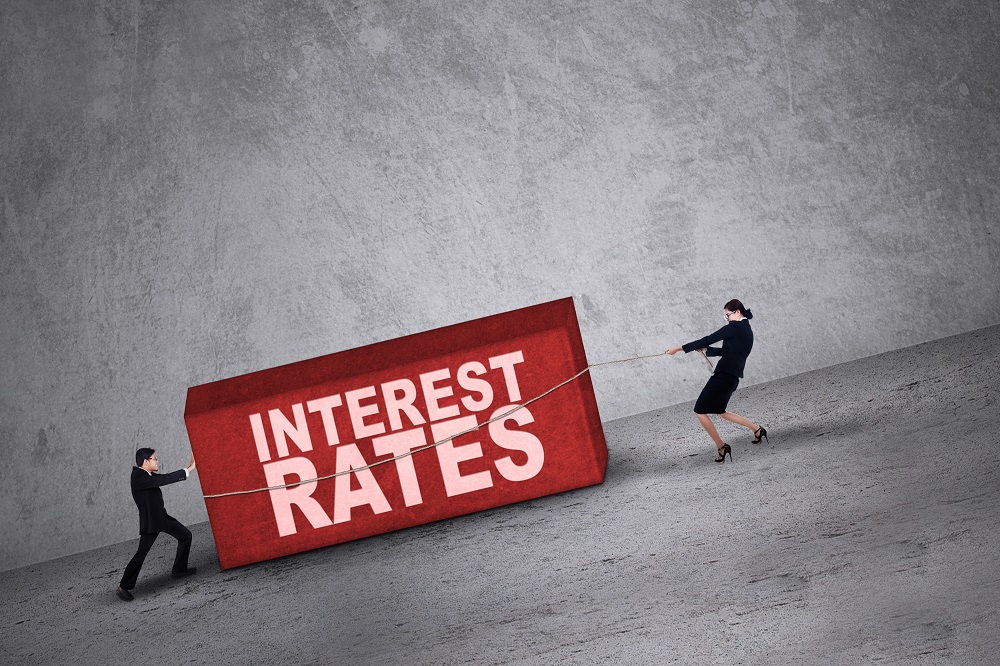After many years of keeping short-term interest rates at zero to help the economy recover from the 2008 recession, the Federal Reserve Board is slowly nudging rates up. It has implemented several quarter-point increases and says it intends to push rates up to the 3% range over the next several years.
This is good news for conservative bank savers who may finally get paid some interest on their capital, and potentially bad news for bond holders who may see the value of their bonds fall in the short-term as new bonds with higher interest rates are issued. But what will rising rates mean for stock investors?
Accepted wisdom says higher interest rates hurt stocks, because investors now have more choices for guaranteed higher yields on fixed income products like bonds, money market funds, and the bank. Dimensional Fund Advisors decided to test that wisdom by taking a statistical look at what has happened to stock returns following previous interest rate increases and decreases.
Their conclusion: It doesn’t look like fluctuations in short-term interest rates have much impact on stock prices at all.
DFA looked at the correlation of monthly US stock returns and changes in interest rates from mid-1954 through last December. The data “shows that while there is a lot of noise in stock returns and no clear pattern, not much of that variation appears to be related to changes in the effective federal funds rate.”
It found that stock prices do go down about 40% of the time when interest rates go up. But it also found that stock prices go up about 60% of the time after interest rate increases. This pattern is no different than in the months when there are no changes in interest rates: in those months stocks go down about 40% of the time and up about 60% of the time.
DFA advises stock market investors not to use any interest rate predictions when deciding whether to buy, sell, or hold stocks. Instead, by staying invested, you will have a better chance “of consistently capturing what the stock market has to offer,” it says.
Richard Schroeder, CFP®
Chief Investment Officer


